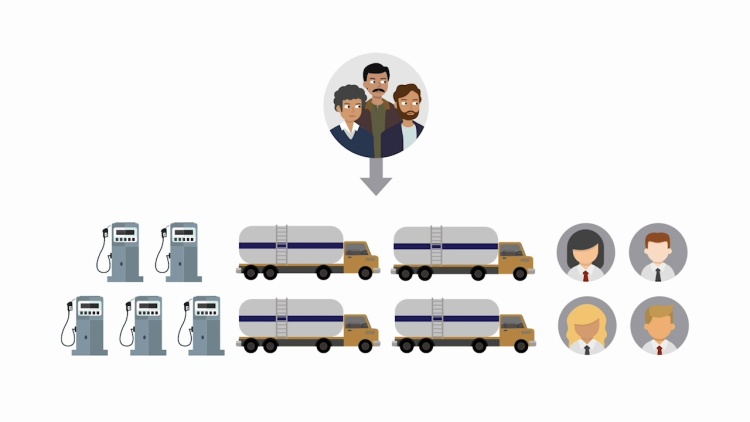Bains LLC v. Arco Products Co.
United States Court of Appeals for the Ninth Circuit
405 F.3d 764 (2005)
- Written by Rose VanHofwegen, JD
Facts
The three Bains brothers were India-born American citizens who bought a gas station in Washington. The brothers incorporated as Bains LLC (plaintiff) and did business as Flying B, eventually owning five gas stations and a tanker. When an oil pipeline rupture disrupted fuel transport in Washington for two years, Bains bought three more tankers, hired more drivers, and hauled fuel for Arco Products Company (defendant). Arco employee Bill Davis subjected Flying B drivers to racial epithets, delayed signing delivery receipts, accused them of safety violations, and made them clean up other drivers’ spills. When the brothers reported the abuse to Davis’s superior, Arco terminated their contract. Flying B sued for racial discrimination under 42 U.S.C. § 1981 and contract breach. The jury found that Arco breached Flying B’s contract and awarded $50,000 in compensatory damages. It also found that Arco racially discriminated against Flying B, awarding only $1 in nominal damages, plus $5 million in punitive damages. Arco appealed, arguing that (1) the nominal compensatory award established that the discrimination caused no economic harm; (2) harm to a corporation requires economic loss; and (3) the $5 million in punitive damages was excessive.
Rule of Law
Issue
Holding and Reasoning (Kleinfeld, J.)
What to do next…
Here's why 910,000 law students have relied on our case briefs:
- Written by law professors and practitioners, not other law students. 47,100 briefs, keyed to 997 casebooks. Top-notch customer support.
- The right amount of information, includes the facts, issues, rule of law, holding and reasoning, and any concurrences and dissents.
- Access in your classes, works on your mobile and tablet. Massive library of related video lessons and high quality multiple-choice questions.
- Easy to use, uniform format for every case brief. Written in plain English, not in legalese. Our briefs summarize and simplify; they don’t just repeat the court’s language.





